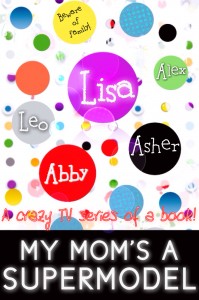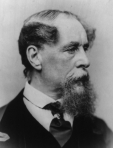Write the Way You Want to Write
A guest post by Douglas R
WHY do we live, behave and even make art as though we shouldn’t be ourselves? I saw a tweet recently, “4 Tips to Write like Nicholas Sparks.” But YOU are supposed to write like YOU.
If there’s one dogma I have, it’s this: Nobody invented creativity. You can mold whatever you want. You can visualize and create anything you want.
Planes don’t need to have wings. Do you know why planes have wings? Because birds have wings. If someone can visualize a plane without wings, then they have the talent to make one.
My point? You don’t have to do it that way because someone else did.
No Rules
There are no rules. In fact, following rules only makes your work look like someone else’s.
We subconsciously follow writing rules, but we don’t need to. There will only ever be one Charles Dickens.
And maybe your work won’t be called “literature” because your writing style is different. Maybe you won’t be nominated for national literary awards. So what? Being true to yourself and your voice is worth ten Nobel Prizes.
Contemporary writing is now called “popular fiction”. I call it pop fiction, and it’s more popular these days anyway. People love natural writing. It’s engaging and conversational.
Write with gusto. Fill your words with passion – your way.
My family drama series, My Mom’s a Supermodel, was inspired by a television series like How I Met Your Mother and iCarly. I decided to write it much like the shows I liked, and I did it in my own style.
The book is written in a crisp and controversial style—including the All Rights Reserved page. I have my signature style all over the book. The prologue also jumps in before the contents page to stir up the reader.
You can make your book as appealing as you like. Soak it with your personality.
My Mom’s a Supermodel is written in first-person and present tense. There it is again. Do you hear people blabbing about the limitations of writing this way? If you’re planning to write your book this way, don’t listen to anything anyone says about the limitations. Just write your book the way you want. It’s your creation. There are no rules before you and there will be no rules after you, except your own.
You can never run out of ideas
Some people complete their story and start to worry about having anything more to write. As though they’ve used up all the creativity in the world.
That’s a virus. It’s worse than the flu because it keeps us in a state of fear. We need to be in a state of creativity, abundance and more possibility.
The abundance of stories is infinite. No number in the universe exists to tally to the amount of possibilities.
You can imagine anything: uncountable crazy, funny, mysterious, hilarious, amazing and explosive stories. The only objective is to believe you are can write the most amazing story. And when the idea comes, grasp it and go write that brilliance.
To the core, writing is an expression of who we are. No one can declare who you are but YOU. No one can write your story the way you can. They may plagiarize your idea, but it won’t have the true soul to it. Writing comes from the desire to express and create. A non-physical spirit that manifests itself in words and pages. It’s the same force that lures artists to paint. That makes us design the things we want.
What if you don’t even know what you want to express?
It’s okay to not know what we want to write about. This summer I canceled three stories (a sum of 80,000 words – a full length novel). But I have no regrets. If I don’t feel like I’m writing what I really want to say, I stop.
Discover what you really want to write about. Be honest to yourself. You will eventually find it.
Have faith, enjoy what you do. Let go.
My Mom’s a Supermodel, my family drama of a novel, is a funny rule-breaking book.
If TV can have twenty episodes in one season, how about twenty episodes in one book?
Be brave enough to step out of line. Be bold and write in the most daring way possible. You already know how you really want to write your story. Let no idea hold you back.
Make love with art.
The addictive-style of TV series comes to books for the first time with My Mom’s a Supermodel, featuring 19 episodes of Alex and his family. They arm-wrestle their English teacher, fall into swimming pools with crocodiles and fight the girl with the red beard. With a record like that, who’s to say they won’t burn down the candy shop?
But with a longing for his real family, Alex wants to find his real mother. My Mom’s a Supermodel is free today (October 14, 2013) on Amazon. Grab your copy here and find out if Alex’s mom really is a supermodel.
About the author
Douglas R is a self-published fiction writer, and a traditionally published author of Tunnels, a book about truth, love and a secret power that could change a man’s life—so long he doesn’t die in the first chapter. Follow his email list, Stories with Douglas R, and get Tunnels free, as well as a free copy of My Mom’s a Supermodel, plus future stories and updates including a top-secret ebook he is working on to inspire your dreams.





